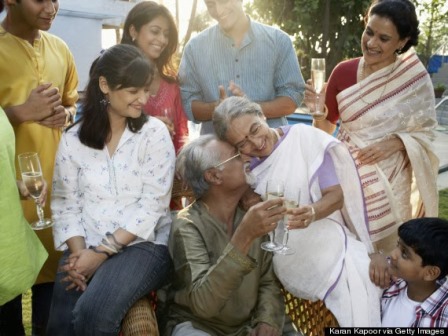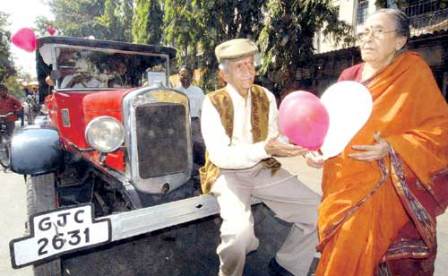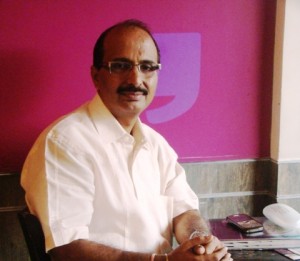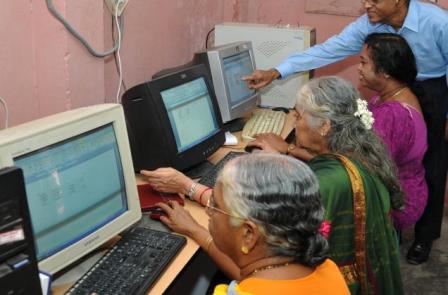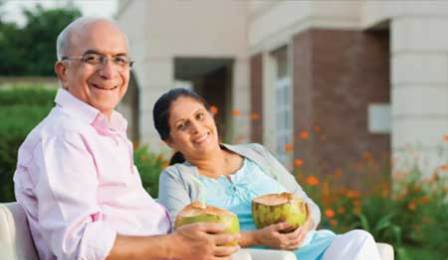Deep Shrivastava’s mother, Anuja, was widowed at a very young age. Today, she is married and lives in the UK.
As told to Reyna Mathur
My mother is the picture of happiness today – she has good health, a loving husband, a close circle of friends. At 66, she is doing all the things she never had the time or money for earlier. She travels, has a reading club, goes to the park for Tai Chi, even takes a baking class for the neighbourhood children.
This is not the story of a retired woman finally finding the time to enjoy her life. My mother, Anuja, got married for the second time five years ago. Her husband, Prashant, is settled in the UK and runs a small restaurant near their home. I lost my own father, Sushil, when I was about five years old. He had a heart attack on his way back from work one day and died in the train before he could get help. My mother was left to look after me, without an income and no skills that could get her a job.
It is safe to say that my childhood passed in relative poverty. My parents had not saved up too much money, and the expenses were mounting up. I remember seeing very little of my mother in those days…always a great cook, she would take catering orders for parties and weddings. She was always out of the house, even on Sundays, when other mothers would be at home with their kids. I was mostly brought up by my grandparents while my mother worked all the time. If she didn’t have orders, she would take home cooking classes.
I have seen her struggle to raise me, never once refusing to buy me something I wanted even when she had little money. She gave me a great education, a good life at home, even started saving up for my wedding…but she was unhappy. She rarely smiled – I used to think it was because she was tired from working all the time. But it was something else. I realised my mother was in love…
She met Prashant when she was catering for his nephew’s engagement party. They were instantly drawn to each other – he had never married and was not looking for a relationship. Neither was she, because she had a son at home and a house that needed her. But there were sparks, and for the two weeks he was in India, they would meet every day.
I had just started working at the time. My grandfather had already told me about the situation. It turned out that Prashant did not want to be married, and she was keen on marriage. I convinced my grandpa to call him home. It was the sweetest thing watching my mother bring her boyfriend home to meet her parents! I don’t know what my grandparents said to him, but two months later, Prashant proposed to my mother and she accepted.
I had kept a cheerful face throughout and participated with gusto during the wedding ceremony in Mumbai. But as she walked through the gates at the airport to fly to her new home, the tears started to fall down my face. My mother, my saviour, my hero…she was finally about to discover happiness after working all her life for me. As she turned back for a last look, I saw that she was crying too…and then she smiled through her tears.
Deep Shrivastava is a chartered accountant based in Pune. ‘Grey Space’ is a weekly column on senior citizen issues. If you have an anecdote or legal information, or anything you feel is useful to senior citizens, caregives and the society at large, feel free to get it published in this space. Write to editor@themetrognome.in or on Facebook at www.facebook.com/Themetrognome.in and we will publish your account.
(Picture courtesy silverinnings.blogspot.com. Image used for representational purpose only)
